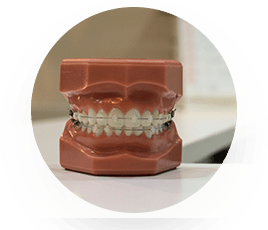Early human beings needed wisdom teeth to chew and dissolve more hearty and chewy foods. In the majority of people, their jaws were much wider than ours are now and wisdom teeth would grow in without disrupting the rest of the teeth. In today’s world, most of us will require at least one to be removed. We have evolved to have smaller jaws, and in many cases, they simply don’t have the space to house 4 more molars. It is said that wisdom teeth got their name because unlike baby teeth, and the first appearance of our adult teeth, wisdom teeth appear much later in life.
Should I Remove My Wisdom Teeth?
Making this determination will depend on multiple factors, the first and foremost being a consultation with your dentist. If the wisdom teeth have erupted through the gums, have enough space to be healthy and do not pose the risk of infection, it is quite possible to keep them. On the other hand, impacted wisdom teeth can present a whole different story. Your dentist will determine your medical and dental history. She or he will x-ray your teeth to diagnose whether or not your wisdom teeth need to be removed. You must let your dentist know if you have had issues with your wisdom teeth (especially if they were impacted in the past) and have any allergies to medications or anesthetics.
Impacted Wisdom Teeth
An impacted wisdom tooth is one that grows at an awkward forward angle and does not properly appear through the gum. As they do not have enough room to emerge normally, they have the potential to cause many problems. It can take years for symptoms of impacted wisdom teeth to appear in some cases, and in others, they can present themselves quickly. Some early warning signs of impacted wisdom teeth are:
- Trouble opening your mouth
- Trouble chewing
- Rear jaw pain
- Tenderness in the gums
- Swelling of the gums
- Bad breath
- Bad taste in your mouth
More Serious Symptoms of Impacted Wisdom Teeth
In some cases, not only can impacted wisdom teeth be painful, but they can also come with symptoms that are dangerous. Unextracted wisdom teeth can cause:
- Misalignment of nearby teeth due to the pressure of the moving wisdom tooth
- Damage to nearby teeth
- Gum disease
- Gum Inflammation
- Infections
- Cavities which appear from brushing wisdom teeth that have partially pierced the gum
- Nerve damage
- Cysts and tumours
- Changes in bite structure
- Pericoronitis - this can lead to life-threatening infections of the neck
Wisdom Teeth Removal Cost
The overall cost of wisdom teeth removal will vary from province to province. However, one can expect to pay from $160-$500 per tooth. The cost differential is due to how much of the gum needs to be manipulated, and how long it takes the dentist to section away the tooth. Another factor that impacts the cost is whether or not the tooth is on the lower or upper jaw. The upper jaw bone is much softer than the lower, therefore making the extraction much easier on the top.
Light sedation (laughing gas) and general anesthesia will also add to the cost of wisdom teeth removal. You can expect to pay $150 and up for the nitrous oxide and upwards of $800 to be fully asleep during the procedure.
Overall, like other dental surgical procedures, wisdom teeth removal comes with a price tag.
Looking for Dental Plan that Can Cover the Cost of a Root Canal?
We can help.
CLICK TO LEARN MOREWisdom Tooth Extraction - Prepare for the Procedure
If you are having your wisdom teeth removed, regardless of the type of sedation you choose, you are still having surgery. It is important to treat this procedure as you would any other surgery. Prepare for the extraction by:
- Being open and honest with your doctor about all prescription medications, supplements, vitamins and over the counter products you are taking beforehand. Some may increase the risk of bleeding or clotting and you may be advised to temporarily stop taking them for a few days before your procedure
- Prepare for someone to take you home. It is unsafe to drive or even take public transit alone after you have been sedated. Anesthesia can take some time to work its way out of your system
- Plan to be off work or school for a few days. Set up pet or childcare if need be
- Have your dentist explain to you what the exact procedure is, and what the benefits and risks are
- Carefully follow the no eating or drinking rule that your doctor recommends. Having food or liquid in your stomach can increase the risk of vomiting from the sedation or anesthesia
Wisdom Teeth Removal Procedure
Your surgery will be performed by an oral surgeon or a dentist. If you are experiencing the more serious complications as discussed earlier in this article, then an oral surgeon is more likely to be your attending physician.
Once you have been sedated, either entirely or mildly and the medication has taken effect, your doctor will extract the entire tooth by way of incision and pulling. In cases where the tooth is at an awkward angle, the doctor will have to carve and break it into smaller pieces.
If the tooth has not erupted from the gum at all, an incision will have to be made to reach it. In this case, you will require a couple of stitches in order for the gum to heal properly. These stitches typically will dissolve on their own. You may also have gauze pads stuffed into the area to absorb the excess blood.
The duration of the procedure will be around 45 minutes to an hour and a half.
If you have been lightly sedated and the doctor determines more time is needed to complete their work, they may administer additional medication (nitrous oxide or novocaine) to numb your mouth for a longer period of time.
Wisdom Teeth Removal Recovery
Expect to have some pain, tenderness and swelling for a few days after your wisdom teeth extraction. For more complicated impacted extractions, plan for a recovery period of about one week. While the pain normally goes away within a few days, it is important to remember that the wound can take months to heal. Ibuprofen and or Acetiminiphin usually work well to calm the pain.
Resuming normal activities is usually fine after the three day recovery period. but take care to avoid any activity that could prevent the required blood clotting inside the wound or anything that may interrupt the healing stitches. Activities to avoid are:
- Using a straw
- Spitting
- Smoking
- Very high impact or strenuous exercise
Wisdom Teeth Recovery Complications
While rare, it is also important to educate yourself on the warning signs of complications during your recovery period. Seek an emergency appointment or closest hospital if you experience the following:
- Numbness
- Trouble swallowing or breathing
- Fever
- Uneffective pain medication
- Bleeding nose
- The appearance of pus or discharge from your mouth or nose
- Bleeding from the wounds that won’t stop
Dry Sockets and How to Avoid Them
A very small percentage of people actually experience dry sockets after a tooth extraction. Dry sockets are caused when the blood clot which naturally forms after a tooth is pulled separates from the hole where the tooth used to live. They are particularly uncomfortable because the nerve may become exposed resulting in extreme sensitivity to air, food and water. Thankfully, dry sockets are easily treated but much simpler to prevent. Preventing dry sockets come with many of the same measures as discussed earlier. They are:
- Not smoking for a few days after your surgery
- Avoiding very hot foods as they can interrupt the healing and natural clotting process
- Not drinking from a straw
- Avoiding very crunchy foods, or any food that breaks down into small bits as they can become lodged into the healing areas
What to Eat After Wisdom Teeth Removal
What you eat after wisdom teeth removal is especially important for the healing process. During your recovery, it's important to give your mouth a break from the excessive chewing and crunching. Here are some excellent and delicious options that keep you feeling full, while allowing your gums to recuperate:
- Butternut squash soup
- Tomato soup
- Cream of broccoli (or anything) soup
- Egg Salad
- Oatmeal
- Smoothies of all kinds. Added protein powder is a great way to supplement the protein you may be used to getting from meat
- Pudding
- Apple sauce
- Hummus
- Chili
The bottom line is, the softer the better.
When Can I Eat Solid Food After Wisdom Teeth Removal?
If you have followed your doctors orders, taken care of your gums after your surgery, have been to your follow up appointment and there are no complications present, most people can resume their regular diet within one week of their extraction. However, it is always recommended to follow the instructions and advice from your dentist.
Wisdom Teeth Removal - The Takeaway
Canada has a terrific healthcare system by way of emergency, diagnostic, imaging and specialty care. What it lacks though, for the majority of the population is dental care. Without a dental plan, the only way to pay for the removal of your wisdom teeth is out of pocket.
That’s where Insurdinary comes in. We have served well over 1 million Canadians looking to supplement their provincial health care plans with private insurance. Private health and dental insurance not only provides access to preventative care, but it offsets the cost of procedures like wisdom teeth extractions. We will compare side by side quotes from Canada’s top insurance companies, saving you time and finding you the best possible plan for your and your families needs.
Have questions? We can help. Contact one of our experienced agents today. We look forward to hearing from you.




